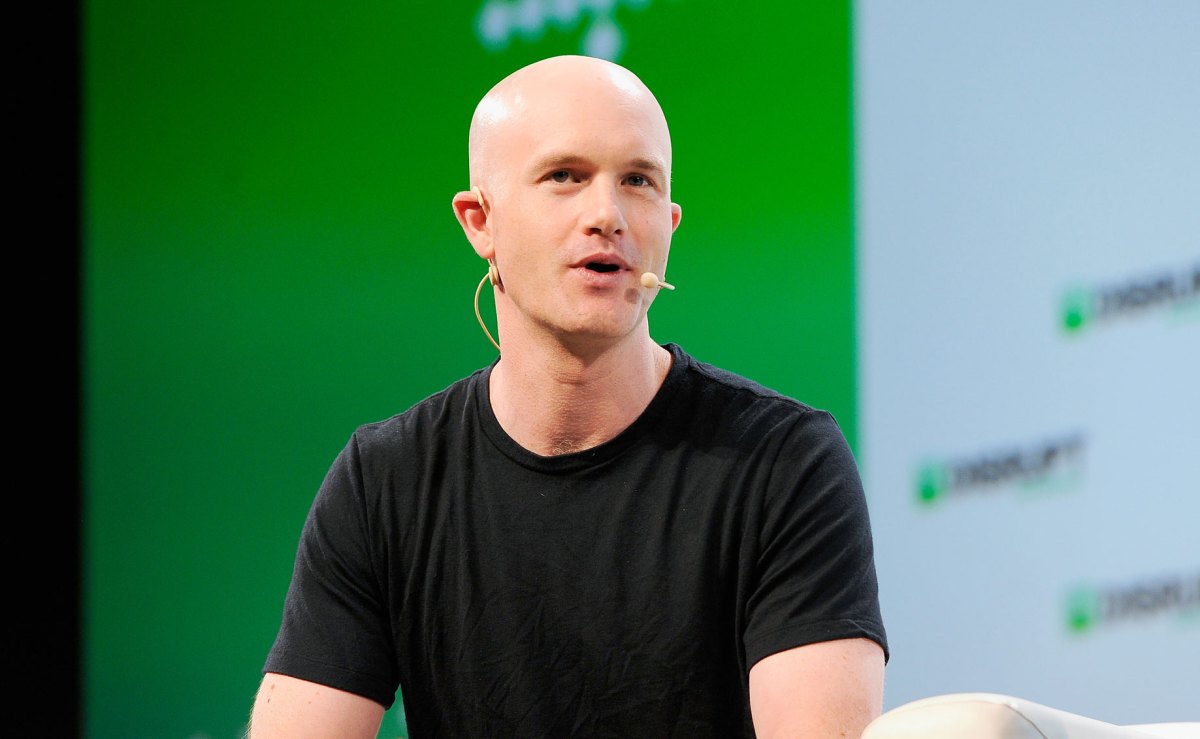Inside the wild world of Britain’s private spies
LONDON — Nestled among the luxury properties of London’s elite on the opulent streets of Mayfair are the headquarters of Britain’s premier private spy firms.
Their ominous names bring to mind the shady corporations of James Bond villains — and business is booming.
Scooping up staff ranging from former British spies and police officers to ex-journalists and military intelligence officials, the U.K.’s private intelligence and investigation firms offer services from basic corporate checks to full-scale surveillance. Some even dabble in the illegal acquisition of highly personal information.
In the last year, government ministers and intelligence agencies have warned that foreign states are using the industry to “carry out their dirty work” in the U.K. — sometimes through the surveillance and harassment of dissidents that have fled to Britain as a safe haven.
POLITICO has spoken to multiple figures who have worked in — and been targets of — Britain’s private spy companies. Some say that despite tough government rhetoric, the industry’s questionable practices remain unregulated and its companies largely unaccountable.
The industry operates “with virtually no oversight, posing serious threats to privacy, human rights and democracy,” said Privacy International’s Ilia Siatitsa.
She warned: “The industry’s ability to offer powerful surveillance and intelligence-gathering capabilities to anyone with the means to pay, without meaningful scrutiny, is alarming.”
Coming in from the cold
London has become the global capital of the private intelligence industry, in part thanks to a worldwide fascination with fictional British spies in James Bond films and John le Carré novels.
Former spies make up an eye-catching minority of those now plying their trade in the private sector, with senior spooks founding or sitting on the boards of firms.
These include former heads of military intelligence agency MI6. Others don’t publicly advertise their former careers, instead touting a vague history of experience in Whitehall and the U.K. Foreign Office.
Some believe these big-name hires are just window dressing to woo international clients.
One figure in private intelligence, granted anonymity like others in this article because of the sensitive nature of their role, said: “You’ve got the great and good on the board, you’ve got a lord here, a lady there, you’ve got a spook, you’ve got the ex-head of this and that — if you’re Mr. Investor from Ukraine or Indonesia, you’re impressed with that.”

A second industry figure said there’s an “element of marketing” involved because corporate clients with a hunger for info find it “very impressive that someone has served in a secret intelligence service.”
Some spooks move to the private sector because gathering intelligence — whether for King and country, or the highest bidder — is simply all they know. Some struggle in the private sector without direct access to the contacts and state support they previously enjoyed.
Britain is an outlier when it comes to the freedoms afforded to retired intelligence officers, with most never disclosing their former employment when leaving agencies like MI5 and MI6.
“That is quite unusual,” said a third private intelligence figure, adding that in the U.S. people are “very open” about having worked for the CIA. America has a “semi-retirement model where when you’re moving out of the agency, you’ll probably spend about six or seven years subcontracting back, and then you’ll finally move into the private sector.”
“We don’t do things like that here at all. So, Vauxhall [MI6] will almost never outsource meaningful intelligence work to the private sector,” they said.
Still, trading in knowledge is commonplace. The same person added that there is a “lot of frustration from both sides of the river [Thames] that the old boys’ network was getting a bit too informal, with people telling their clients that they can call their old buddies.”
Lawfare
London’s emergence as the epicenter of private intelligence is largely down to its proximity to two big pools of clients: Britain’s legal and financial sectors. These two powerhouses of the U.K. economy are regularly at the heart of complex cases that run into the billions.
Much of this work is “quite pedestrian,” says the second private intelligence figure. Basic due diligence reports involve routine checks, including whether someone is on a sanctions list or has had negative press. These, the same person said, are usually done by young graduates and the work “isn’t very well paid or exciting.”
The big-money work broadly falls under the deceptively dull term “litigation support.” This can encompass everything from “opponent research” — dirt-digging to help discredit individuals — to gathering evidence that can be used in court, such as documents, witnesses and hard drives.
Such work has frequently hit the headlines. In 2017, Israeli firm Black Cube had to apologize after allegations were published in the New Yorker that its staff had snooped on journalists and adopted false identities to obtain information about film mogul Harvey Weinstein’s sexual abuse accusers. The company said at the time that it was “in full compliance with the law of any jurisdiction in which it operates.”
Black Cube is still in business, and has operations in London. Members of its advisory board and investigation investment fund are drawn from the upper echelons of intelligence and law enforcement. They include Efraim Halevy, the ninth head of Israeli intelligence agency Mossad; Robert Amaee, a former top official at the U.K.’s Serious Fraud Office; and Adrian Leppard, the former commissioner of the City of London Police.
Not everything a private intelligence firm finds will be used in court. Some material won’t be accepted by the legal teams they work for, and it’s down to judges ultimately to decide what information is deemed admissible.

In bigger cases — sometimes involving global hedge funds or foreign governments — the stakes are high and ethical lines can be blurred, those working in the industry say.
The first private intelligence figure said that “all the usual techniques you can imagine from a Tom Clancy novel” are on the table. Surveillance, theft, hacking and forgery are all tools widely known within the industry, even if they are not publicly advertised.
Much relies on the moral compass — and appetite for risk — of the firms being asked to do the job.
“I’ve only ever been asked by one person to hack someone — a billionaire businessman,” the same person said. “We obviously just laughed at him and his aides tried to tell him to shut the fuck up.”
Crossing the line
Despite the broad reach of Britain’s private intelligence firms, they are largely left to their own devices. The third private intelligence figure said the main problem with the industry is that it’s simply “not regulated.”
“Surveillance evidence is frequently submitted in court,” they said. “Obviously, there are things like hacking which are just out-and-out illegal, but unfortunately they are just part of the landscape.”
Private intelligence firms claim that illegally obtained information is routinely submitted to courts in the U.K., with the third industry figure telling POLITICO there are “ludicrous cover stories put in front of judges” where people are trying to “launder stolen information into court proceedings.”
“I think judges could probably do a better job of being a bit more wide-eyed about what is going on,” they added, citing one case in which information from a stolen tablet was submitted to court — with the legal team doing so claiming it had simply been handed to them in the middle of the night by a whistleblower.
“Everyone knows which firms do it,” the same person said. “The most disturbing thing is it’s all signed off by law firms. There’s still some SRA [Solicitors Regulation Authority]-regulated lawyer somewhere who’s either proactively signed off that hacking or they have not asked the question when the materials come back in of: How the fuck did you get this?”
People are ‘sh*t-scared‘
For the people targeted by private intelligence work — including journalists, whistleblowers and dissidents — the activity can be life-altering. POLITICO spoke to two targets who said that surveillance, hacking and intimidation by such outfits had hit their finances, wellbeing and personal safety.
In one case, contractors working for a private intelligence company misrepresented themselves to the victim’s bank to obtain confidential information, filmed him inside his house, and then paid someone to access his phone.
Yet many of the targets simply will not have the money to push back against the intelligence firms. “That’s what they rely on … People that I have spoken to are absolutely shit-scared,” the first person said.

A second target said that after employing the “standard mechanisms” of threatening litigation for defamation, companies have “tools that they can deploy which are more sinister and can be quite scary.”
“[The company] appointed investigative agencies to surveil me, initially covertly and then overtly with vehicles and cameras placed outside my house,” the second victim said. “My family and I were also being followed.”
They said the company had paid hackers to break into their emails, passing on detailed information about the target’s life — allowing personalized phishing emails aimed at getting access to sensitive information. “When I discussed my case with a king’s counsel [senior U.K. lawyer], they said this was on par with the severity of the News of the World hacking, in terms of the scope and the scale of the invasion of privacy and the harassment involved,” the second target added, referencing a hacking scandal spanning the 1990s to 2011 involving a leading U.K. tabloid.
Both targets said the firms who pursued them are still in operation in the U.K. today.
Private intelligence figures who spoke to POLITICO bemoaned the ethical failures they say dog their profession — and the judgment of prominent figures that remain on company payrolls, whom the first private intelligence figure quoted in this piece accused of “prostituting themselves.”
The same person added: “Providing home addresses to Russian oligarchs who have a history of topping people — particularly journalists who write nasty things about them — is not something to brag about.”
The second private intelligence figure said: “When I see private intelligence firms dragged through the press or the courts for these kinds of transgressions, I think that they’re only going to make money off this. For a certain type of client, that’s exactly what they want done — and that’s free marketing.”
From USSR with love
London’s intelligence firms are often bankrolled by countries and overseas oligarchs with money to burn — with plenty of demand coming from former Soviet states.
“Lots of work revolves around ‘corporate raids’ where foreign investors lose control of an asset due to bent local judges, police or politicians who want [to get] their hands on it,” the third industry figure explained. “They then need to fight to get compensation in the international courts. Kazakhstan had loads of these kinds of disputes and padded out London’s corporate intelligence industry for many years.”
Sanctions against Russia following its 2022 full-scale invasion of Ukraine have also provided big business for Britain’s legal firms — and the private intelligence agencies enlisted to help them.
Private intelligence firms told POLITICO they are aware of other companies in the industry who have been enlisted by Russia’s Deposit Insurance Agency, which was sanctioned by the U.K. government last month.
The third private intelligence figure explained the work of this outfit: “When Russian banks collapse, the owners flee overseas and then their assets will be hunted down by this group.”

They added that although this activity enjoys the “fig leaf” of helping the Russian state track down criminals, “for a lot of the bankers, the banks are shut down because they are perceived as too political [by the Russian state.]”
This year has seen several high-profile cases of suspected Russian spying and sabotage in the U.K. — often by proxies. Ken McCallum, the director general of MI5, revealed in a threat update last year that Russia and Iran are increasingly turning to private intelligence operatives and criminals to carry out work for them in the U.K., in what he dubbed an “eye-catching shift.”
The first private intelligence figure said that while the amount of Russian client work in the sector is still “pretty high,” the same cannot be said for Iran. “They’re stupid, but they’re not that stupid,” the same person said of their industry colleagues.
In recent years, Iran has emerged as a top-tier threat to Britain in the eyes of security services — rivaling China and Russia. One of the most pressing threats has been the safety of Iranian dissidents now living in the U.K. As with Russia, Iran has turned to proxies — criminals and private intelligence firms who are either gullible or simply willing to do their dirty work.
The third private intelligence figure said that “foot soldiers” contracted out to do surveillance work on dissidents “often don’t ask very many questions” about who they are spying on, and in some cases are content with the excuse that the information they’re being asked to glean relates to a divorce case.
U.S. court documents show that in 2020 an Iranian intelligence operative worked to procure the services of a private firm based in the U.K. to surveil an Iranian journalist — including taking photographs of the journalist’s residence.
The operative — Kiya Sadeghi, who is currently on the FBI’s most wanted list — told the firm, according to the court documents, that he was working for a company based in Dubai and was looking to retrieve money stolen from or owed to his client. The U.S. government said he had in fact “concealed his true purpose, which was to procure surveillance services for an Iranian intelligence agency.”
Neither the U.K. Home Office nor counter-terror police were able to confirm to POLITICO whether the firm cited by the private investigator and allegedly used by Iran had been identified, or whether they would face any repercussions over involvement in the case.
Reining it in
Despite mounting concern about its activities and calls for greater oversight — including from the legal profession — Britain’s private intelligence industry remains almost entirely free of regulation. Most licensing schemes for private intelligence remain voluntary, despite the previous U.K. government’s promise of more robust regulation.
Siatitsa, of campaign group Privacy International, said the absence of regulation allows firms “to engage in invasive surveillance, data exploitation and manipulation of public opinion, often operating in secrecy.”
“High-profile scandals have already exposed the dangers, including the hacking of government representatives and the monitoring of environmental and human rights defenders,” Siatitsa added. “Despite overwhelming evidence of abuse, the industry continues to thrive in a permissive environment.”

Others are skeptical that more rules will help. The second figure in private intelligence said there was no need for extra regulation, but simply for “proper enforcement of existing laws that affect private intelligence.”
The work firms do for overseas states and clients will receive some oversight under the British government’s new Foreign Influence Registration Scheme, which went live earlier this month. Companies have until Oct. 1 to register arrangements with foreign powers and controlled entities — with penalties for non-compliance. Special scrutiny is given to Russia and Iran.
A government official said any crimes committed by private investigators and intelligence companies must be dealt with by the police. They said that although there had been some progress in raising the industry’s standards, the government will consider whether there is a need for further regulation that doesn’t restrict legitimate activity.
Dan Jarvis, the U.K. government’s security minister, told POLITICO that those working in private intelligence and security do “important work” but acknowledged that their specialist skills, access to information and proximity to individuals makes them “attractive targets for foreign states to exploit.”
He added that firms have been asked to carry out due diligence to ensure they are not “being tasked by foreign powers to carry out damaging activity in the U.K.”
The third private intelligence figure said the wider industry could stomach changes that might drive up standards: “I don’t think there will be much resistance in the industry to say their firm worked for DRC or Kazakhstan on a litigation case.”
“If anything, I think it will be a good thing, because when you bring that kind of activity out of the shadows, it makes people concentrate a little bit more. And some of the, frankly, illegal activity we’ve seen in the private intelligence industry over the last 20 years will probably be flushed out.”
The first private intelligence figure POLITICO spoke to was more pessimistic.
Asked what chance the latest disclosure scheme had of working, they said: “Given the sheer incompetency of any regulatory authority to do anything meaningful here, I would say absolutely zero.”




















:quality(85):upscale()/2023/09/18/918/n/1922398/a1136b676508baddc752f5.20098216_.jpg)
:quality(85):upscale()/2025/10/09/670/n/1922283/00b944c868e7cf4f7b79b3.95741067_.jpg)
:quality(85):upscale()/2025/10/15/765/n/1922398/29c37a6e68efd84bb02f35.49541188_.jpg)
:quality(85):upscale()/2025/09/09/891/n/1922283/7222624268c08ccba1c9a3.01436482_.png)













:quality(85):upscale()/2025/08/13/775/n/1922283/3c0cbead689ccd0c422644.10221678_.png)



